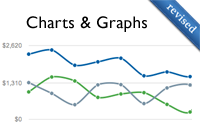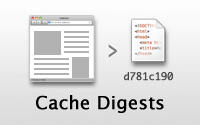Categories
- Active Record
- Active Resource
- Active Support
- Administration
- Ajax
- APIs
- Authentication
- Authorization
- Background Jobs
- Caching
- Code Walkthrough
- Controllers
- Debugging
- Deployment
- eCommerce
- Forms
- Mailing
- Models
- Performance
- Plugins
- Production
- Rack
- Rails 2.0
- Rails 2.1
- Rails 2.2
- Rails 2.3
- Rails 3.0
- Rails 3.1
- Rails 3.2
- Rails 4.0
- Refactoring
- Routing
- Search
- Security
- Testing
- Tools
- Views
Model Caching (revised)
Caching at a low level is a great option when the view is too dynamic to cache and you need something flexible that can work anywhere in the application. Here I show a variety of ways to use Rails.cache with Active Record.
(12 minutes)
Eager Loading (revised)
One way to improve performance is to reduce the number of database queries through eager loading. Here I demonstrate this and compare the difference between the "includes" and "joins" methods.
(7 minutes)
Performance Testing
Learn how to add performance tests that automate benchmark and profile reports. Here I show how to find the bottlenecks to optimize a page. I also show how to compile Ruby with gcdata to get information about memory usage.
(16 minutes)
Fast Tests
A slow test suite can put a damper on test-driven development. In this episode I show a variety of ways to optimize specs including: selective testing, preloading Rails, and testing outside of Rails.
(17 minutes)
Polling for Changes (revised)
Polling may not be as common today as pushing changes over an open socket, however it is still an effective, simple solution if you do not need instantaneous updates.
(10 minutes)
Autocomplete Search Terms
Learn how to add autocompletion to a search form and improve performance using Rack middleware, caching and switching from SQL to Redis.
(17 minutes)
Charts & Graphs (revised)
If you have a lot of data, consider adding a graph to provide an overview of it. Here I show how to use Morris.js to chart an Order model and visualize trends in the data.
(12 minutes)
Turbolinks
Turbolinks can make your Rails app feel faster by using JavaScript to replace the page content when clicking a link. It will be default in new Rails 4.0 applications, but here I show how to use it in Rails 3 and mention some of the gotchas.
(7 minutes)
Cache Digests
The cache_digests gem (also included in Rails 4) will automatically add a digest to the fragment cache key based on the template. If a template changes the cache will auto-expire. But watch out for the gotchas!
(7 minutes)
MiniProfiler
MiniProfiler allows you to see the speed of a request conveniently on the page. It also shows the SQL queries performed and allows you to profile a specific block of code.
(9 minutes)










